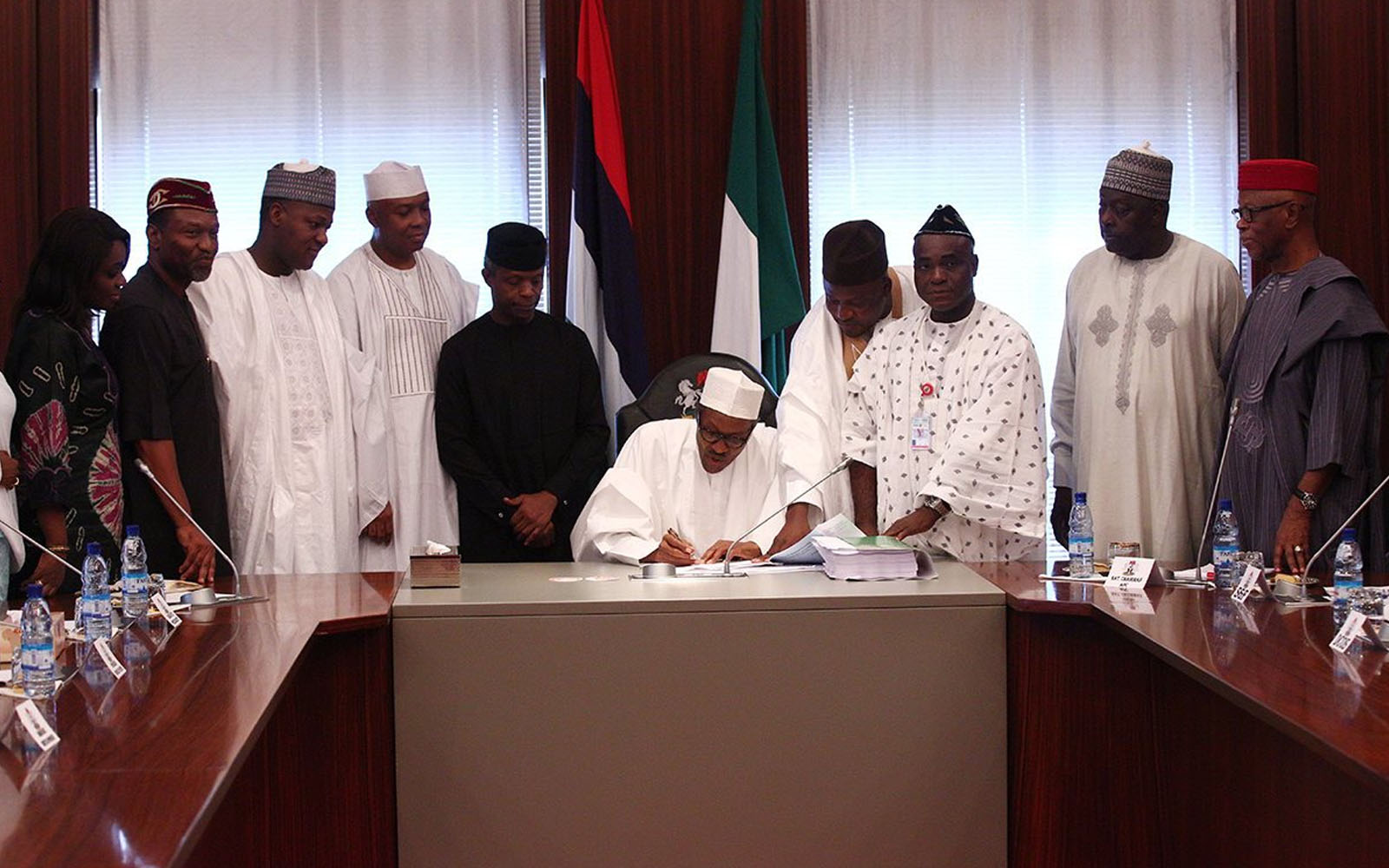President Muhammadu Buhari, today, signed the 2018 budget into law. The budget was submitted in November last year, and passed on May 25, 2018, by the National Assembly.
A few minutes past noon today, I signed the 2018 Appropriation Bill into Law. #Budget2018 pic.twitter.com/zQfE5BTPol
— Muhammadu Buhari (@MBuhari) June 20, 2018
https://platform.twitter.com/widgets.js
Senate President Bukola Saraki and Speaker House of Representatives Yakubu Dogara where absent, but sent representatives.
Promise failed
The late passage of the budget, six months into 2018 means the government has been unable to fulfill its promise to keep to a regular fiscal calendar.
Vice President Yemi Osinbanjo while signing the 2017 budget on June 12, 2017, had stated that the 2018 budget would be passed before the end of the year.
“Therefore, on the understanding that we will be submitting the 2018 Budget to the National Assembly by October 2017, the leadership of the National Assembly has committed to working towards the passage of the 2018 Budget into law before the end of 2017.”
The move according to him, was in a bid to have a uniform fiscal year, and align with private sector firms which largely run their financial year between January to December. This would enable all sectors in the economy to plan efficiently. The Vice President’s signing was due to the President travelling out to attend to his health issues.
President Buhari submitted the budget to the National Assembly in November, 2017. The passage was shifted to March next year due to the inability of several Ministries, Departments and Agencies (MDAs) to present their budgets.
The legislature eventually passed it in May this year, six months after. Total expenditure was jacked up by ₦508 billion, to ₦9.12 trillion as against the ₦8.612 trillion presented by the President. The crude oil benchmark was raised from $45 to $50.5.
The President submitted the 2016 budget to the legislature on the 22nd of December, 2015. He signed the budget on May 2, 2016.
